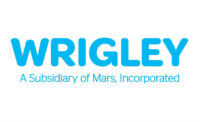The U.S. Food and Drug Administration (FDA) and the Federal Trade Commission (FTC) have set their sights on manufacturers, distributors and retailers selling e-cigarette liquid branded to resemble kid-friendly food products such as juice boxes, candy and cookies.
In addition to issuing warning letters to 13 vape companies, the FDA released images featuring the problematic e-cigarette liquids alongside the confectionery, snack and beverage products they appear to resemble. Some of the e-cigarette branding includes cartoon-like imagery.
FDA Commissioner Scott Gottlieb pointed to the similarities, adding that no tobacco products should be marketed in a way that “endangers kids.”
“It is easy to see how a child could confuse these e-liquid products for something they believe they’ve consumed before — like a juice box,” he said. “These are preventable accidents that have the potential to result in serious harm or even death.”
Examples of the products cited in the warning letters include: “One Mad Hit Juice Box,” which resembles Tree Top juice boxes; “Vape Heads Sour Smurf Sauce,” which resembles Warheads candy; and “V'Nilla Cookies & Milk,” which resembles Nilla Wafer and Golden Oreo cookies.
The FDA said several of the companies that received warning letters were also cited for illegally selling the products to minors.
“Companies selling these products have a responsibility to ensure they aren’t putting children in harm’s way or enticing youth use, and we’ll continue to take action against those who sell tobacco products to youth and market products in this egregious fashion,” Gottlieb said. “While we continue to encourage the development of potentially less harmful forms of nicotine delivery for currently addicted adult smokers, we will not allow that work to come at the expense of our children.”
The FDA and the FTC have requested responses from each company outlining specific actions to address each agency’s concerns. Failing to respond within 15 business days or failing to correct violations may result in further action such as seizure or injunction.
“Protecting young children from unwarranted health and safety risks is one of our highest priorities,” Acting FTC Chairman Maureen K. Ohlhausen said. “Nicotine is highly toxic, and these letters make clear that marketing methods that put kids at risk of nicotine poisoning are unacceptable.”
The warning letters are one of several steps the FDA will take under its Youth Tobacco Prevention Plan, which aims to restrict youth access and limit the appeal of tobacco products to young people.
In late 2017, the FDA began investigating tobacco product labeling and advertising that imitates food products, particularly those marketed toward children. The products cited in the warning letters are in violation of the Federal Food, Drug, and Cosmetic Act because the labeling and/or advertising that imitates kid-friendly foods is false or misleading. The FTC joined the FDA on the warning letters under Section 5 of the Federal Trade Commission Act, which prohibits unfair or deceptive advertising.
The rise in popularity of electronic nicotine devices (ENDS) such as e-cigarettes, which often use nicotine-containing liquids or “e-liquids,” has coincided with an increase in calls to poison control centers and visits to emergency rooms related to e-liquid poisoning and other nicotine exposure.
According to National Poison Data System data, there were 8,269 e-cigarette and liquid nicotine exposures among children younger than 6 between January 2012 and April 2017. Exposure to the nicotine in e-liquid products, even in relatively small amounts, could result in acute toxicity. Severe harm can occur in small children from exposure to or ingestion of e-liquids, including death from cardiac arrest, as well as seizure, coma, and respiratory arrest.
The FDA also noted that more than 2 million middle and high school students used e-cigarettes and other ENDS in 2016, with flavor availability being one of the top reasons for use.
The FDA continues to enforce important existing regulations specifically aimed at addressing youth access to ENDS, including the ban on the sale of tobacco products to youth under age 18, the requirement to verify age by photo identification and the prohibition on free samples.




